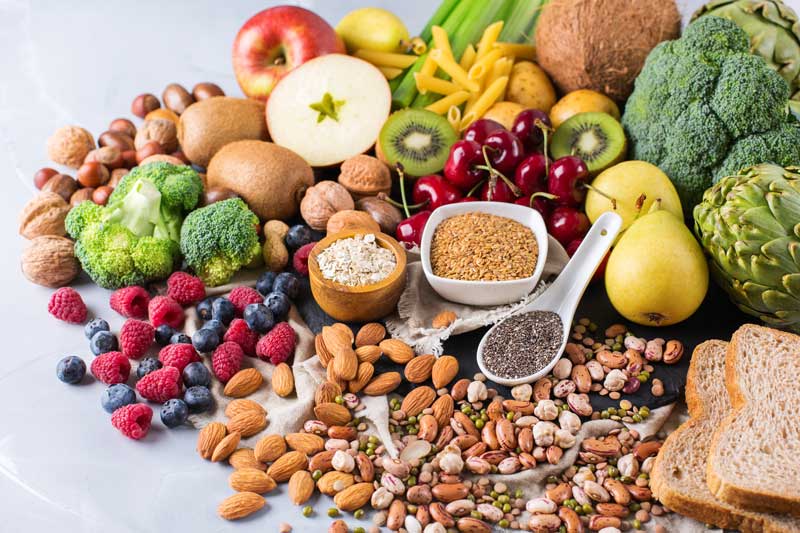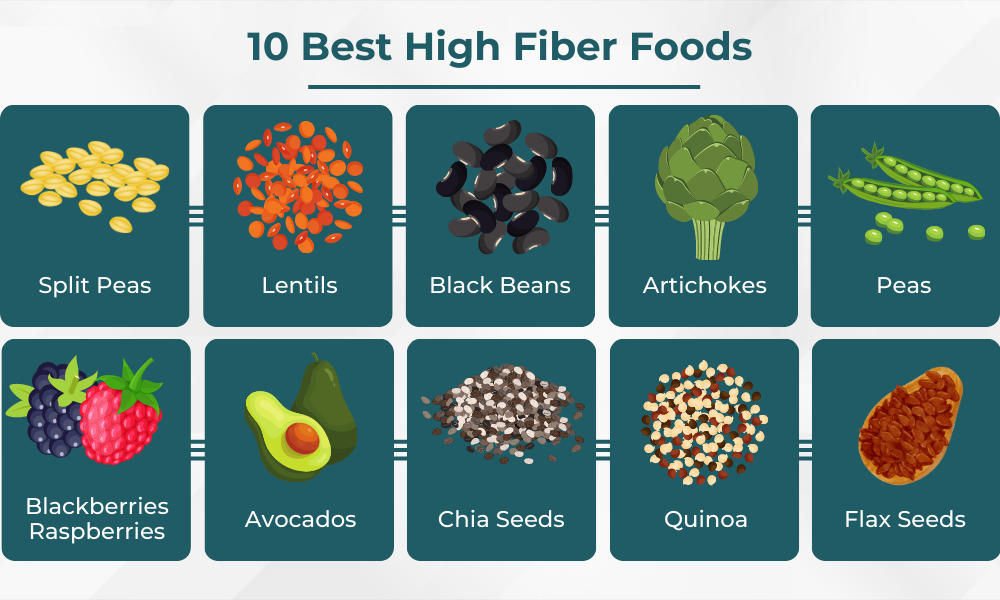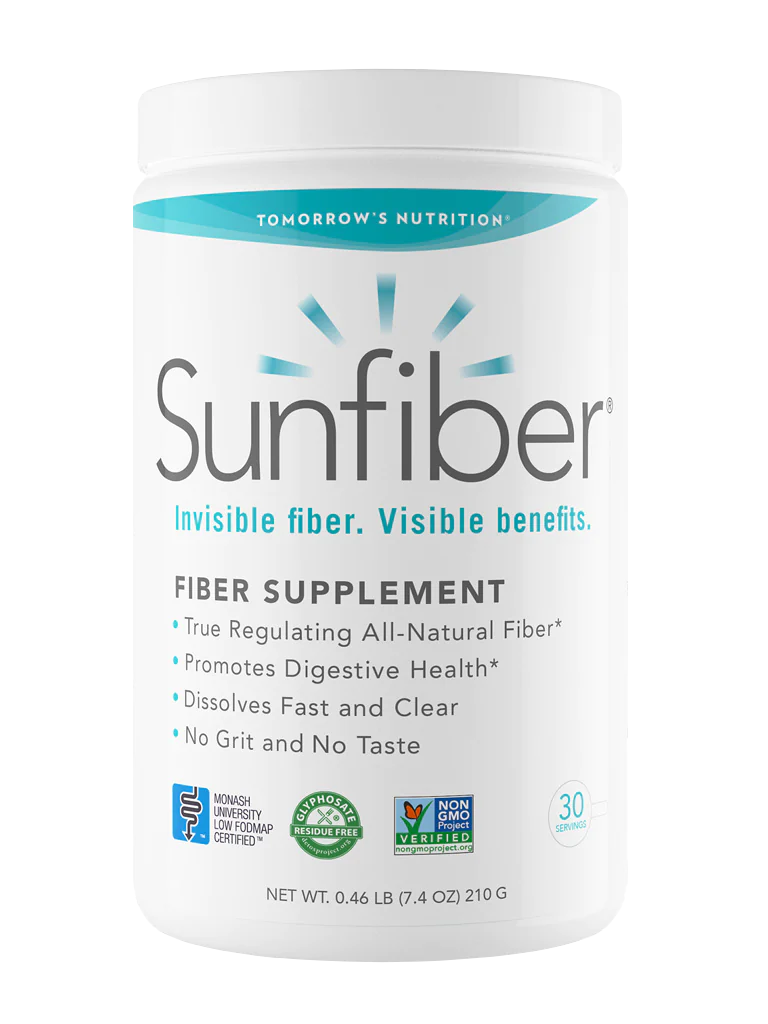There are plenty of ways to increase your fiber intake, but not all foods will have an equal benefit.
After seeing an old article on Care2 about suggestions for adding fiber to your diet, we asked our nutrition expert Derek Timm for his take.
He provided us with an in-depth description of the benefits of fiber, along with 10 delicious high fiber foods to eat in 2023.
Timm noted that fiber is an essential nutrient that serves a vital role in healthy digestion as a high fiber diet can help lower LDL cholesterol and reduce the risk of stroke, hypertension, obesity, diabetes, and heart disease.
He also noted the potential benefits of fiber supplements like Sunfiber. Sunfiber promotes intestinal and colon health, aids in the transit of food through the intestines, and assists weight control by providing a satiety effect. Sunfiber promotes the absorption of essential minerals and helps the body combat increased blood glucose levels by controlling the glycemic index of foods.
10 Best High Fiber Foods
If you’re determined to get all the fiber you can from your standard diet, Timm put together this list of the 10 best high fiber foods you should be eating.
Green Split Peas
Fiber Content: 16.3 grams/cup cooked.
Green split peas stand out as a potent source of fiber, providing a hearty 16.3 grams per cup when cooked. Incorporating green split peas into your diet can aid digestion and promoting regularity, while also support weight management and heart health due to their cholesterol-lowering properties.
Lentils
15.6 grams/cup.
With a generous 15.6 grams of fiber per cup, lentils are a versatile legume that can benefit your health in multiple ways. Their high fiber content assists in promoting a healthy gut by fostering beneficial gut bacteria growth. Additionally, lentils are rich in both protein and fiber, making them an excellent option for those aiming to achieve satiety.
Black Beans
15 grams/cup.
A single cup of black beans contains a substantial 15 grams of fiber, making them an exceptional choice for digestive health. These legumes are packed with antioxidants and essential nutrients, potentially contributing to better heart health and reduced risk of chronic diseases. Incorporating black beans into your meals is a great source of fiber along with providing other potential health benefits.
Artichokes
10.3 grams/per medium artichoke.
Offering around 10.3 grams of fiber per medium-sized artichoke, this vegetable is a fantastic addition to get fiber in your diet. Artichokes are not only delicious but also support liver health and aid digestion. The fiber content, combined with antioxidants and prebiotic properties, helps maintain a healthy gut microbiome and may assist in preventing digestive disorders.
Peas
8.8 grams/cup.
A cup of peas provides 8.8 grams of fiber and a wealth of essential nutrients. Peas are particularly rich in soluble fiber, which helps to lower cholesterol levels and enhance heart health. The combination of fiber, vitamins, and antioxidants in peas contributes to overall well-being.
Blackberries or Raspberries
8 grams/cup.
Blackberries and raspberries offer 8 grams of fiber per cup, making them a flavorful choice to boost your fiber intake. These berries are renowned for their high levels of antioxidants, which contribute to improved cognitive function and may aid in preventing cell damage. Their natural sweetness makes these high fiber foods a delightful way to satisfy your sweet tooth while nourishing your body.
Avocados
6.7 grams/half medium avocado.
Half a medium avocado contains 6.7 grams of fiber. While avocados are known for their healthy fats, they also pack a significant fiber punch. This fiber helps promote a feeling of fullness, making it easier to manage portions and maintain a healthy weight. Additionally, avocados provide vitamins and minerals that support skin health and immune function.
Chia Seeds
5.5 grams/tbsp.
Just one tablespoon of chia seeds provides 5.5 grams of fiber, making them a powerhouse of nutrition. These tiny seeds absorb liquid and form a gel-like consistency in your digestive tract, aiding in gentle detoxification and promoting regular bowel movements. Chia seeds are also rich in omega-3 fatty acids, which support heart and brain health.
Quinoa
5 grams/cup.
Offering 5 grams of fiber per cup, quinoa is a versatile whole grain that contributes to balanced nutrition. Its fiber content supports digestive health and may help stabilize blood sugar levels. Quinoa is also a complete protein source, containing all essential amino acids, making it an excellent choice for vegetarians and vegans.
Flax Seeds
2 tbsp. of ground seed.
Just two tablespoons of ground flax seeds provide a considerable fiber boost. Beyond their fiber content, flax seeds are a prime source of plant-based omega-3 fatty acids, promoting heart health and reducing inflammation. Their ability to aid digestion and support weight management further highlights their role as a valuable addition to your diet.
Incorporating these high fiber foods into your meals can have a positive impact on your overall health. Their impressive fiber content, coupled with various other nutrients and health benefits, make them essential components of a well-rounded and nourishing diet.





0 Comments